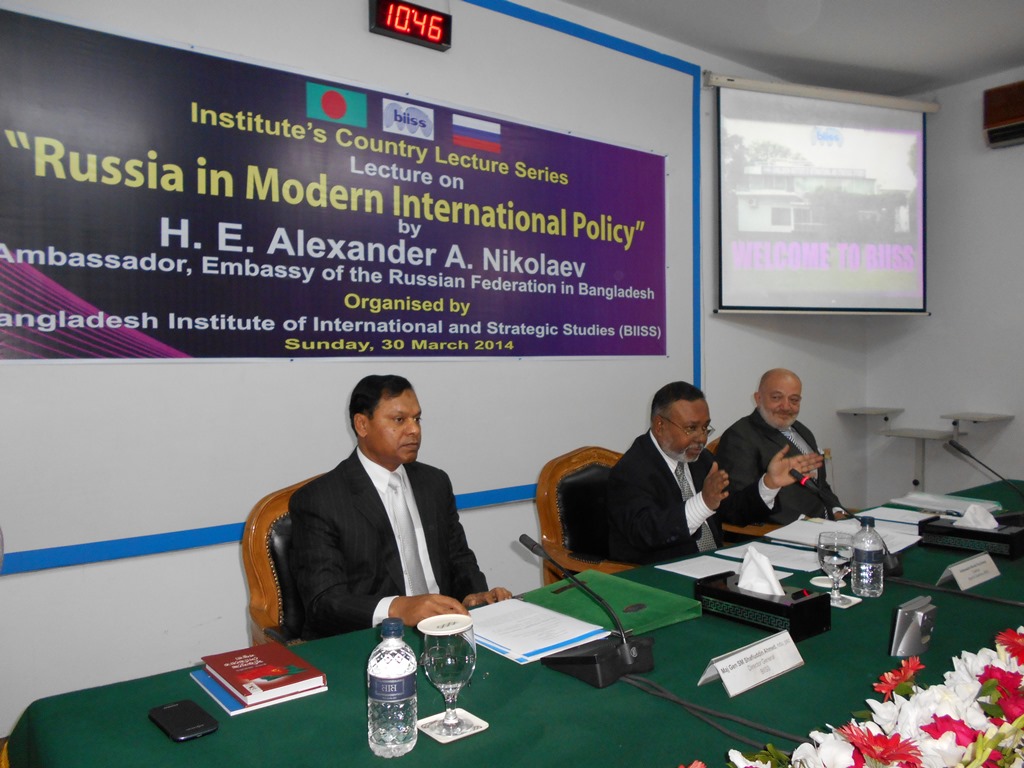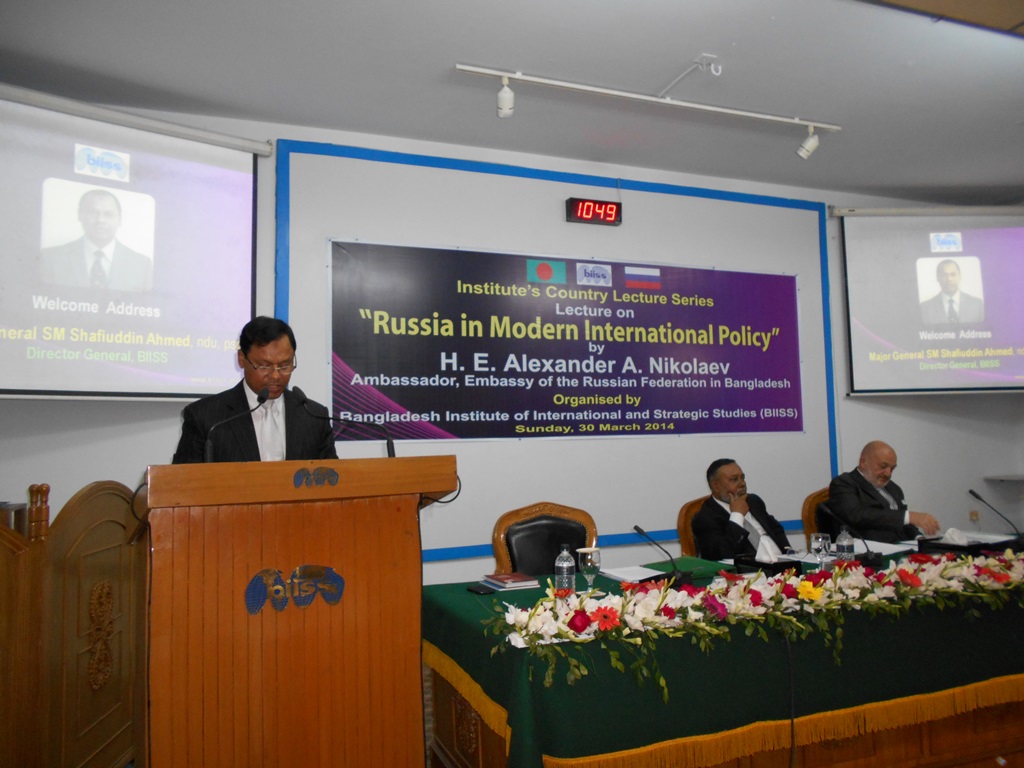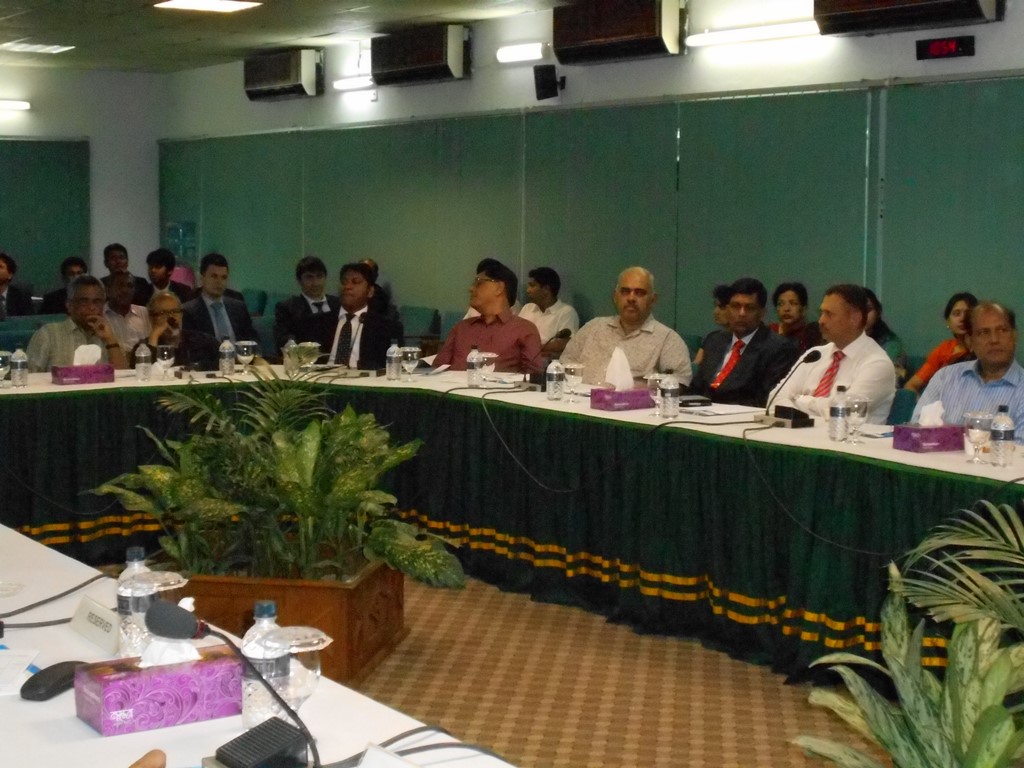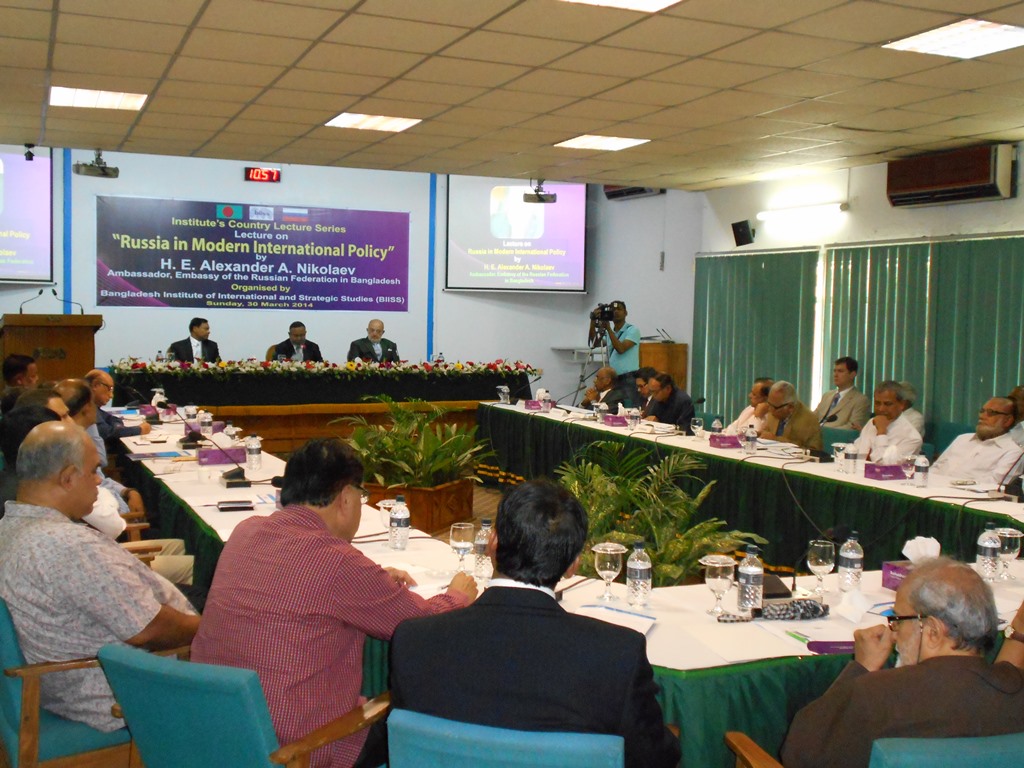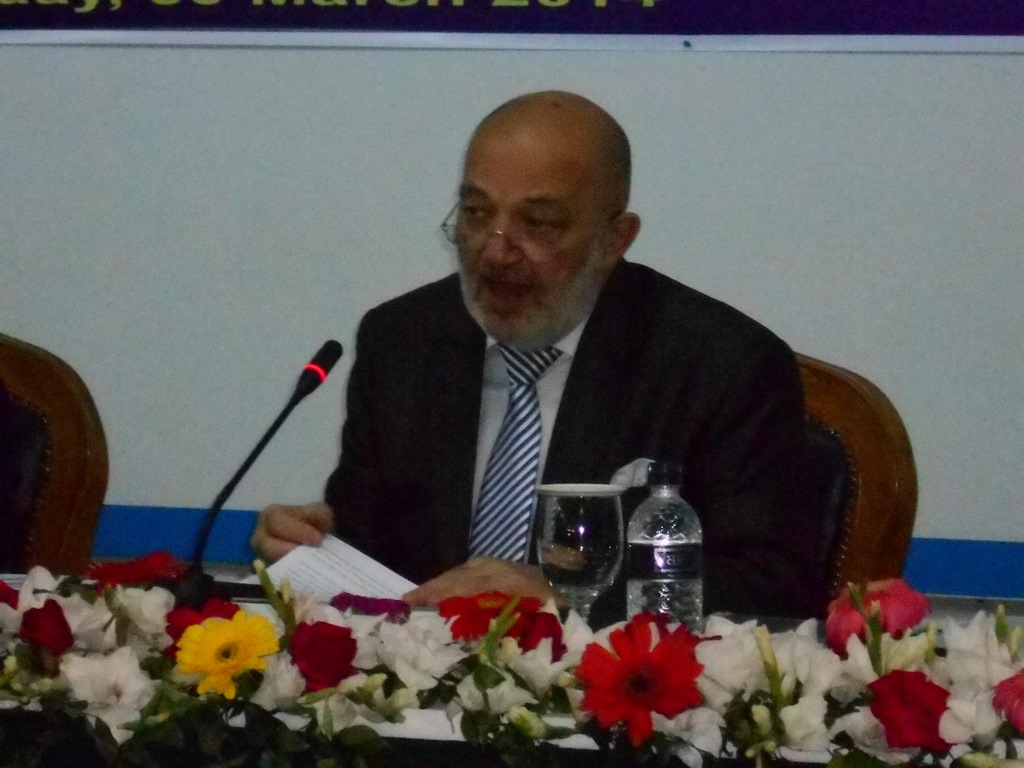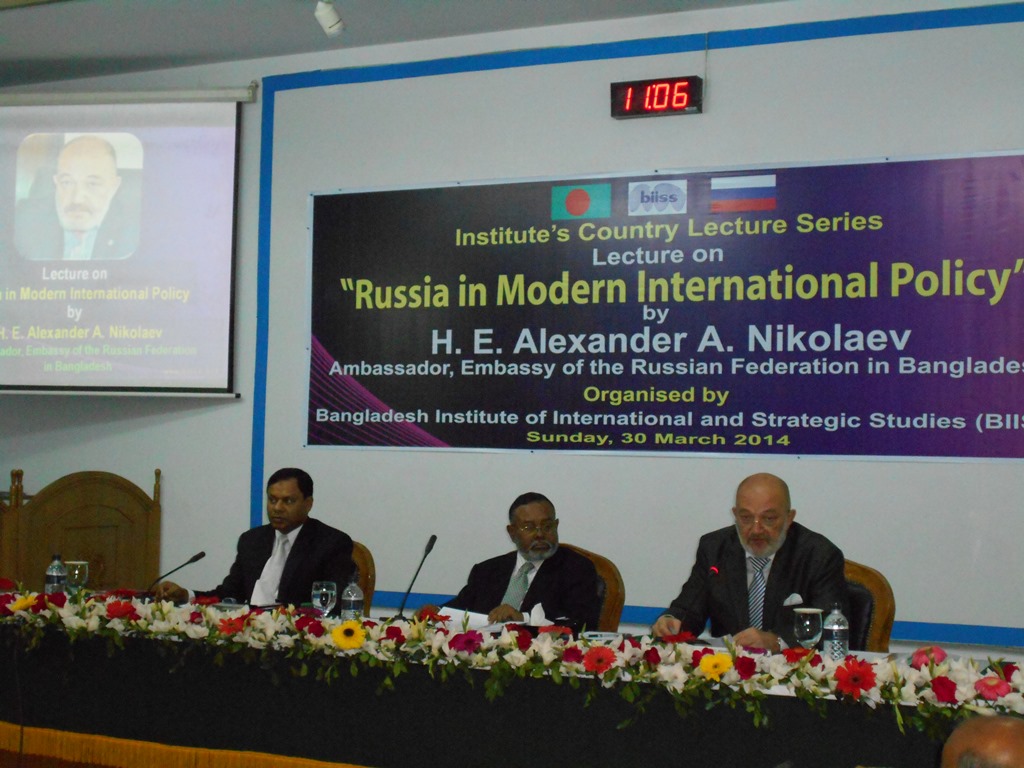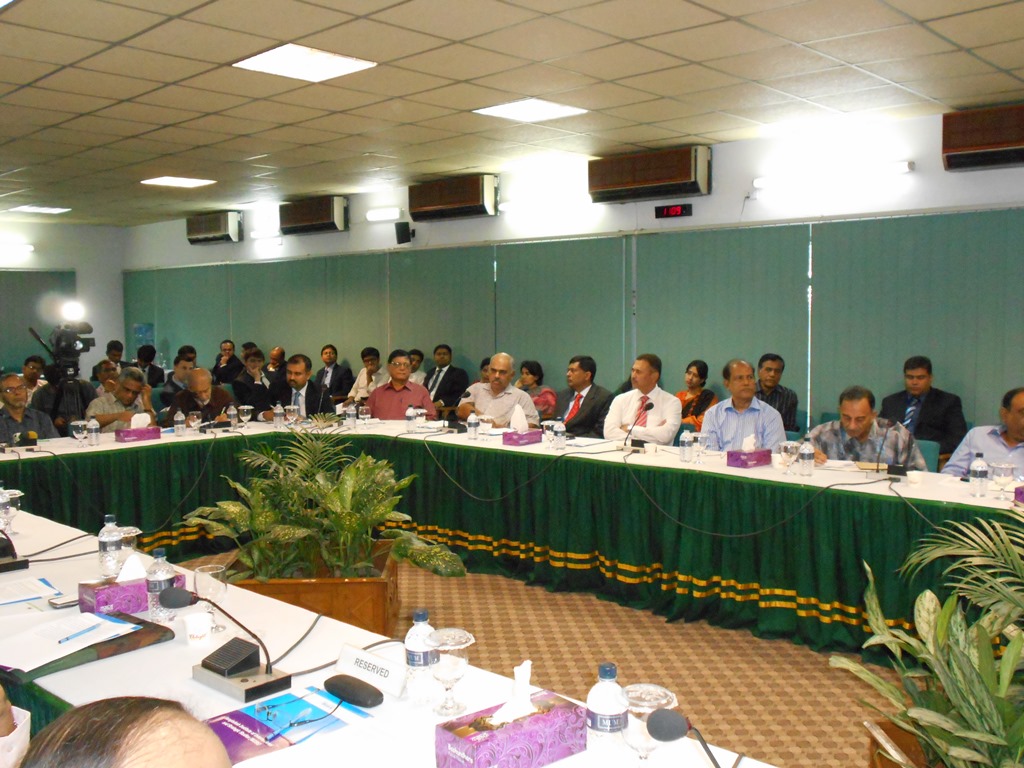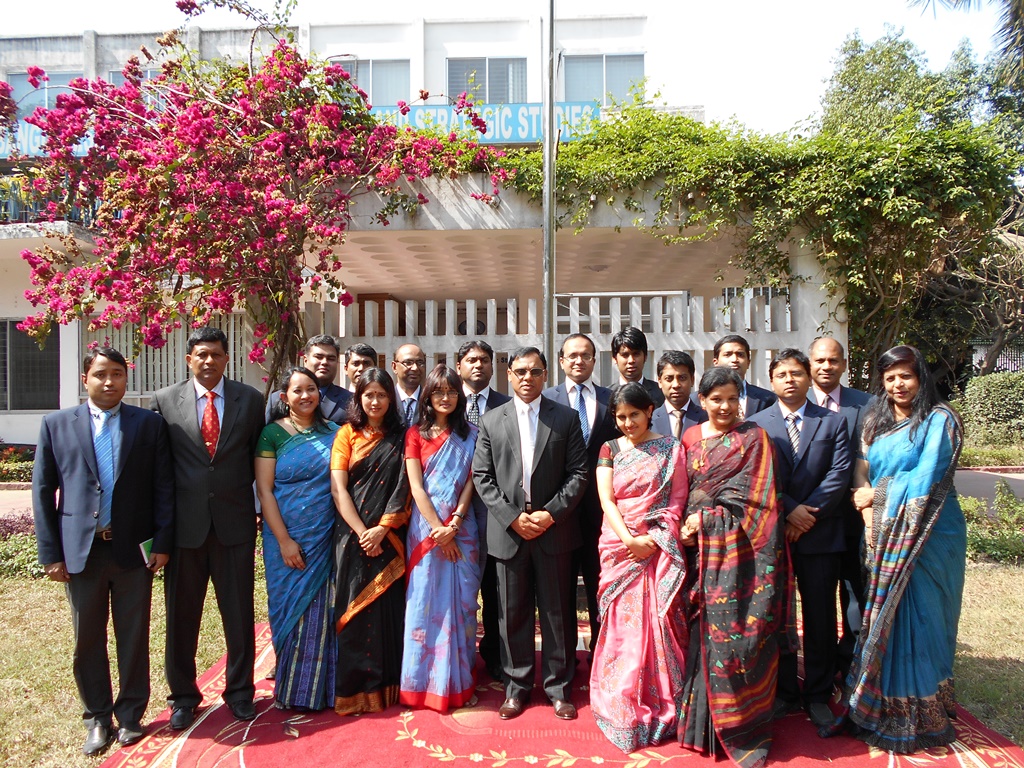Country Lecture on Russia in Modern International Policy on 30 March 2014
DATE: 2014-03-30
Bangladesh Institute of International and Strategic Studies (BIISS) organised its 5th Country Lecture on Russia in Modern International Policy on 30 March 2014 at BIISS auditorium, Dhaka. The 5th Country Lecture was delivered by H. E. Mr. Alexander A. Nikolaev, Ambassador of the Russian Federation to Bangladesh. He spoke about Russia's role in international arena and highlighted various aspects of Bangladesh-Russia relations. Major General SM Shafiuddin Ahmed, ndu, psc, Director General of BIISS delivered the Address of Welcome. Ambassador Munshi Faiz Ahmad, Chairman, Board of Governors, BIISS chaired the session and summed up with the concluding speech.
In his Welcome Address, Major General SM Shafiuddin Ahmed, ndu, psc, Director General, BIISS, said that the purpose of the Country Lecture is to enhance the understanding about specific countries with whom Bangladesh has bilateral relations and to explore scopes to strengthen the relations. He noted that the year 2013 was a year of major foreign policy victories for Russia and the country was out to prove its ability to significantly influence world events. Regarding bilateral relations, he said that during our Liberation War in 1971, the leaders of the former USSR played extra-ordinary supportive role. Recently, relations between the two countries are gaining impetus in many spheres such as exploration of prospects for cooperation in peaceful use of nuclear energy, further promotion of bilateral trade and cultural ties. Bangladesh signed its biggest defence deal with Russia worth US$ 1 billion, including US $500 million for the country's first nuclear power plant. He opined that Bangladesh and Russia need to explore every opportunity to work together for the sake of progress and prosperity of their people.
H. E. Alexander A. Nikolaev, Ambassador of the Russian Federation to Bangladesh in his lecture on Russia in Modern International Policy focused various aspects related to Russia's international policy and its relation with Bangladesh. He noted that Russia started to develop a very good relation with Bangladesh from the very first day of the country as an independent state. The people of the then Soviet Union raised their voice against atrocities against the people of Bangladesh by the then military administration. That was not simply a political decision but the deep emotion of the Russian people who are always supportive of national liberation movements all over the world. Immediately after the liberation war, Russia rendered political support to Bangladesh. It also assisted to restore and develop the war-ravaged country. He mentioned that the former USSR navy helped to sweep mines in the Bay of Bengal to make Chittagong port operational. He added that cooperation between Bangladesh and Russia has always been comprehensive and covers a wide range of fields from politics to culture. Russia and Bangladesh share common approach to ideas of multipolar world architecture and fair economic system. He especially highlighted the cooperation between the two countries in energy sector. Regarding the Crimea issue, he said that the case of Crimea is not an annexation but re-unification. Russia did not violate any international law and no single fire was shot during the re-unification. He further added that case of Crimea is of national self-determination similar to those of Kosovo, East Timor and South Sudan.
Munshi Faiz Ahmad, Chairman, Board of Governors, BIISS, mentioned that in March 1972, Father of the Nation, Prime Minister Bangabandhu Sheikh Mujibur Rahman visited Moscow, which was his first formal overseas trip, to express the nation's appreciation for their role in liberation war. Trade flourished between the two countries under mutually beneficial barter arrangements. He added, the two countries enjoy excellent friendship and cooperation. There is ample scope and need to expand trade with Russia. Presently, Bangladesh trade with Russia stands at $ 700 million.
Senior civil and military officials including former officials, members of the academia, businessmen, representatives of think-tanks, scholars, and policy makers participated in the open discussion session. It was highlighted that Bangladesh-Russia trade relation has huge potential to exceed US$ 1.52 billion in the next five years. In replying to the questions emerged during the open discussion, the Russian Ambassador identified the lack of direct banking as obstacle to the growth of trade volume. He noted that Russia is helping to modernise some units of Ghorashal power plant. He further mentioned that if the government invites further tenders, Russian companies will participate in the renovation of other units. He hoped that direct flight between Moscow and Dhaka can be operational in the future. In order to enhance cultural cooperation, the Russian government will welcome any initiative from the Bangladesh Government.

